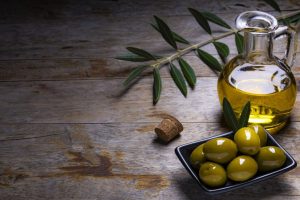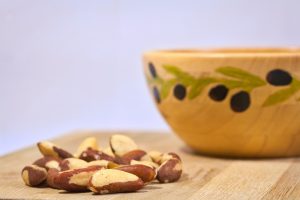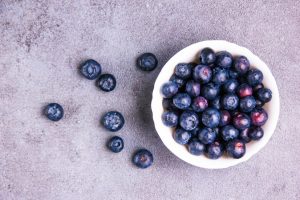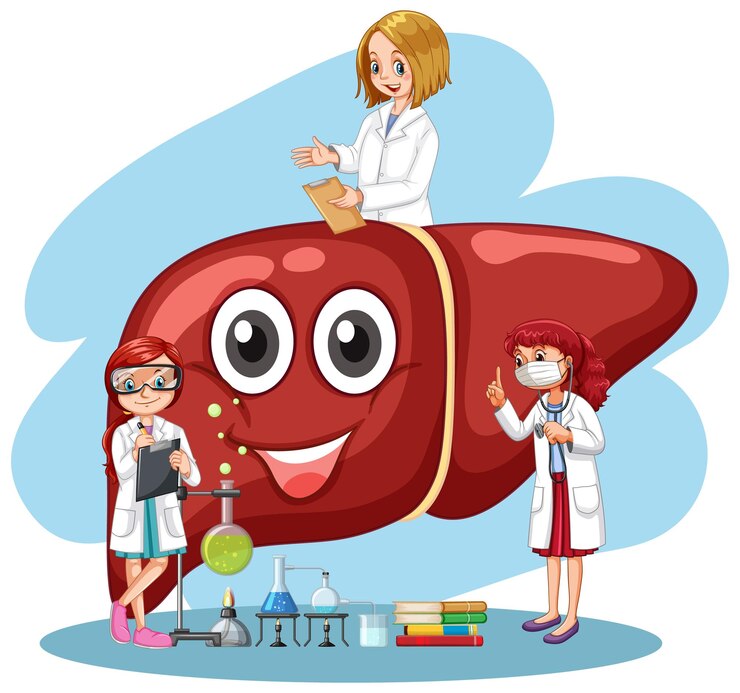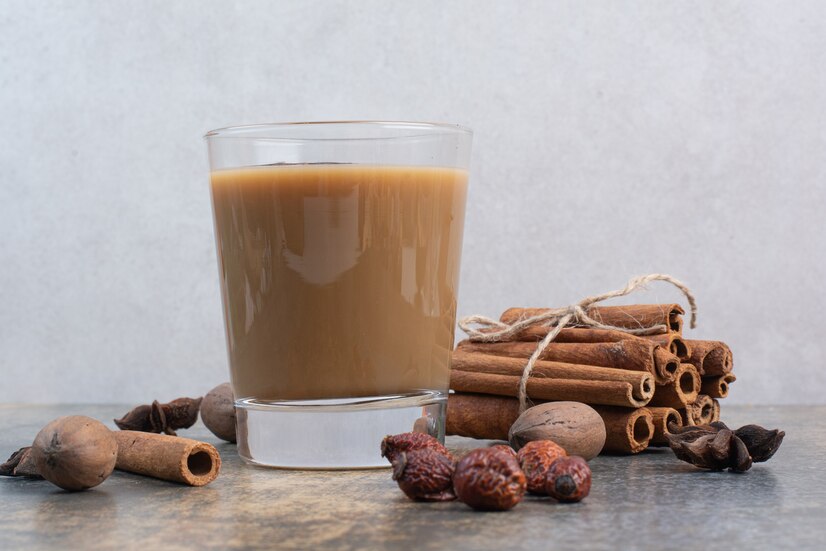Use olive oil instead of motor oil. Olive oil is regarded as a “healthy fat,” according to Healthline, because of its advantageous effects on metabolism, heart health, and liver health.
According to a tiny study cited, patients with non-alcoholic fatty liver disease showed improvements in their liver enzyme and fat levels after taking just one teaspoon of olive oil daily. It continues, “The subjects also experienced improved hepatic blood flow and decreased fat accumulation.” These results have since been confirmed by additional research, according to Healthline.
Be Fearless With Garlic
When it comes to foods that are good for your liver, LiverDoctor.com lists garlic as one of the top six. According to the publication, “this pungent herb helps to keep your liver healthy and has an enormous range of benefits in your body.”
It adds that garlic has a high sulphur level, which is crucial for the second stage of detoxification. Garlic “helps to speed it up” because many people lag in this stage of the natural detox. Onions, leeks, and eggs are other sources of sulphur.
Take a Fishing Adventure
Alright, there is enough of fishing available in the grocery store, so you don’t really need to go. As a result of its high protein content, fish is considered by LiverDoctor.com to be among the finest foods for preserving liver health.
It continues, “Protein’s amino acids are in charge of the detoxification process.” It continues, “Amino acids, which are abundant in fish and other foods high in protein, are essential for the enzymes needed for phase 1 and 2 detoxification in the liver.” It states that fish also includes omega-3 fatty acids, which are advantageous for people whose inflammation-related elevated liver enzymes are present.
Admit It With Pride: Brazil Nuts
Brazil nuts are considered a “superfood” by Prevention because they are an excellent source of selenium, a trace mineral that may lower the risk of liver cancer.
According to a 2016 research of 477,000 adults, people with the greatest levels of selenium actually have a five to ten times lower risk of developing liver cancer than people with lower selenium levels. It states that glutathione peroxidase is “an antioxidant and major detoxification enzyme,” and that selenium aids in its activation so that the liver can benefit from it.
Difficult to Win… Beetroots or roots?
If not, your liver (and heart) can give you strong reasons to try beetroot juice. Perhaps you’ve never tried it before. According to Healthline, betalains—an antioxidant and nitrate—found in beetroot juice have the potential to improve heart health by reducing inflammation and oxidative damage.
That’s all very well, but we are discussing the liver here, don’t we? As per the report, beetroot juice has been shown in multiple rat experiments to decrease oxidative damage and inflammation in the liver while simultaneously increasing natural detoxifying enzymes. It hasn’t been studied on humans for whatever reason, but it probably won’t harm you to try some in moderation yourself.
Grapefruit Is a Wonderful Fruit
According to GlobalHealingCenter.com, the larger, somewhat sour cousin of the orange, the grapefruit, is rich in antioxidants and vitamin C, which promote the liver’s “natural cleansing abilities.”
To assist improve levels of detoxification enzymes in the liver to flush out carcinogens and other unwanted material, it adds, if you don’t want to consume whole grapefruits with a spoon. Instead, you can enjoy a small glass of freshly squeezed grapefruit juice.
Eat some broccoli.
Although it might not be a dish that everyone enjoys, if you serve it as an accompaniment to your next dinner, your liver might thank you. According to LiverDoctor.com, the cruciferous vegetable is “highly beneficial for the liver” because of its sulforaphane content, which aids in phase 2 detoxification.
Given that all cruciferous vegetables contain sulforaphane, perhaps one of the other veggies will appeal to you in terms of flavour. Brussels sprouts, cauliflower, cabbage, and kale are some of these. Maybe just sprinkle some cheese on top.
In relation to polyphenols, WebMD notes that blueberries also contain these nutrients, which may offer protection against nonalcoholic fatty liver disease (NAFLD), a disorder that frequently coexists with obesity and elevated cholesterol.
Given that they can be a little tart, it’s possible that you dislike blueberries. If that’s the case, try substituting with dark chocolate, olives, or plums, and mention the source. Maybe pair it with a cup of green tea.
One Apple Every Day
One apple a day prevents liver problems? Apples, at least according to GlobalHealingCenter.com, have the proper “chemical constituents” (rich in the fibre pectin, among other things) that can help the digestive tract rid itself of pollutants.
It adds that, in essence, the apple aids your liver’s optimal removal of those damaging poisons from your body. So perhaps opt for an apple the next time you’re thinking about doing a costly, trendy cleanse.
Keep the spinach in tact.
Leafy greens, including spinach, are rich in glutathione, a “powerful antioxidant” that has been associated with improved liver function, according to WebMD. It goes on, “And preparing spinach couldn’t be simpler.”
According to the article, you can sauté it with some garlic and olive oil for an added flavour boost or use it as the foundation for a salad. It says that a sprinkling of fresh Parmesan cheese will keep it from wilting.
Frequently Oil Your Liver
Use olive oil instead of motor oil. Olive oil is regarded as a “healthy fat,” according to Healthline, because of its advantageous effects on metabolism, heart health, and liver health.
According to a tiny study cited, patients with non-alcoholic fatty liver disease showed improvements in their liver enzyme and fat levels after taking just one teaspoon of olive oil daily. It continues, “The subjects also experienced improved hepatic blood flow and decreased fat accumulation.” These results have since been confirmed by additional research, according to Healthline.
Be Fearless With Garlic
When it comes to foods that are good for your liver, LiverDoctor.com lists garlic as one of the top six. According to the publication, “this pungent herb helps to keep your liver healthy and has an enormous range of benefits in your body.”
It adds that garlic has a high sulphur level, which is crucial for the second stage of detoxification. Garlic “helps to speed it up” because many people lag in this stage of the natural detox. Onions, leeks, and eggs are other sources of sulphur.
Take a Fishing Adventure
Alright, there is enough of fishing available in the grocery store, so you don’t really need to go. As a result of its high protein content, fish is considered by LiverDoctor.com to be among the finest foods for preserving liver health.
It continues, “Protein’s amino acids are in charge of the detoxification process.” It continues, “Amino acids, which are abundant in fish and other foods high in protein, are essential for the enzymes needed for phase 1 and 2 detoxification in the liver.” It states that fish also includes omega-3 fatty acids, which are advantageous for people whose inflammation-related elevated liver enzymes are present.
Admit It With Pride: Brazil Nuts
Brazil nuts are considered a “superfood” by Prevention because they are an excellent source of selenium, a trace mineral that may lower the risk of liver cancer.
According to a 2016 research of 477,000 adults, people with the greatest levels of selenium actually have a five to ten times lower risk of developing liver cancer than people with lower selenium levels. It states that glutathione peroxidase is “an antioxidant and major detoxification enzyme,” and that selenium aids in its activation so that the liver can benefit from it.
Difficult to Win… Beetroots or roots?
If not, your liver (and heart) can give you strong reasons to try beetroot juice. Perhaps you’ve never tried it before. According to Healthline, betalains—an antioxidant and nitrate—found in beetroot juice have the potential to improve heart health by reducing inflammation and oxidative damage.
That’s all very well, but we are discussing the liver here, don’t we? As per the report, beetroot juice has been shown in multiple rat experiments to decrease oxidative damage and inflammation in the liver while simultaneously increasing natural detoxifying enzymes. It hasn’t been studied on humans for whatever reason, but it probably won’t harm you to try some in moderation yourself.
Grapefruit Is a Wonderful Fruit
According to GlobalHealingCenter.com, the larger, somewhat sour cousin of the orange, the grapefruit, is rich in antioxidants and vitamin C, which promote the liver’s “natural cleansing abilities.”
To assist improve levels of detoxification enzymes in the liver to flush out carcinogens and other unwanted material, it adds, if you don’t want to consume whole grapefruits with a spoon. Instead, you can enjoy a small glass of freshly squeezed grapefruit juice.
Eat some broccoli.
Although it might not be a dish that everyone enjoys, if you serve it as an accompaniment to your next dinner, your liver might thank you. According to LiverDoctor.com, the cruciferous vegetable is “highly beneficial for the liver” because of its sulforaphane content, which aids in phase 2 detoxification.
Given that all cruciferous vegetables contain sulforaphane, perhaps one of the other veggies will appeal to you in terms of flavour. Brussels sprouts, cauliflower, cabbage, and kale are some of these. Maybe just sprinkle some cheese on top.
In relation to polyphenols, WebMD notes that blueberries also contain these nutrients, which may offer protection against nonalcoholic fatty liver disease (NAFLD), a disorder that frequently coexists with obesity and elevated cholesterol.
Given that they can be a little tart, it’s possible that you dislike blueberries. If that’s the case, try substituting with dark chocolate, olives, or plums, and mention the source. Maybe pair it with a cup of green tea.
One Apple Every Day
One apple a day prevents liver problems? Apples, at least according to GlobalHealingCenter.com, have the proper “chemical constituents” (rich in the fibre pectin, among other things) that can help the digestive tract rid itself of pollutants.
It adds that, in essence, the apple aids your liver’s optimal removal of those damaging poisons from your body. So perhaps opt for an apple the next time you’re thinking about doing a costly, trendy cleanse.
Keep the spinach in tact.
Leafy greens, including spinach, are rich in glutathione, a “powerful antioxidant” that has been associated with improved liver function, according to WebMD. It goes on, “And preparing spinach couldn’t be simpler.”
According to the article, you can sauté it with some garlic and olive oil for an added flavour boost or use it as the foundation for a salad. It says that a sprinkling of fresh Parmesan cheese will keep it from wilting.
Frequently Oil Your Liver
Use olive oil instead of motor oil. Olive oil is regarded as a “healthy fat,” according to Healthline, because of its advantageous effects on metabolism, heart health, and liver health.
According to a tiny study cited, patients with non-alcoholic fatty liver disease showed improvements in their liver enzyme and fat levels after taking just one teaspoon of olive oil daily. It continues, “The subjects also experienced improved hepatic blood flow and decreased fat accumulation.” These results have since been confirmed by additional research, according to Healthline.
Be Fearless With Garlic
When it comes to foods that are good for your liver, LiverDoctor.com lists garlic as one of the top six. According to the publication, “this pungent herb helps to keep your liver healthy and has an enormous range of benefits in your body.”
It adds that garlic has a high sulphur level, which is crucial for the second stage of detoxification. Garlic “helps to speed it up” because many people lag in this stage of the natural detox. Onions, leeks, and eggs are other sources of sulphur.
Take a Fishing Adventure
Alright, there is enough of fishing available in the grocery store, so you don’t really need to go. As a result of its high protein content, fish is considered by LiverDoctor.com to be among the finest foods for preserving liver health.
It continues, “Protein’s amino acids are in charge of the detoxification process.” It continues, “Amino acids, which are abundant in fish and other foods high in protein, are essential for the enzymes needed for phase 1 and 2 detoxification in the liver.” It states that fish also includes omega-3 fatty acids, which are advantageous for people whose inflammation-related elevated liver enzymes are present.
Admit It With Pride: Brazil Nuts
Brazil nuts are considered a “superfood” by Prevention because they are an excellent source of selenium, a trace mineral that may lower the risk of liver cancer.
According to a 2016 research of 477,000 adults, people with the greatest levels of selenium actually have a five to ten times lower risk of developing liver cancer than people with lower selenium levels. It states that glutathione peroxidase is “an antioxidant and major detoxification enzyme,” and that selenium aids in its activation so that the liver can benefit from it.
Difficult to Win… Beetroots or roots?
If not, your liver (and heart) can give you strong reasons to try beetroot juice. Perhaps you’ve never tried it before. According to Healthline, betalains—an antioxidant and nitrate—found in beetroot juice have the potential to improve heart health by reducing inflammation and oxidative damage.
That’s all very well, but we are discussing the liver here, don’t we? As per the report, beetroot juice has been shown in multiple rat experiments to decrease oxidative damage and inflammation in the liver while simultaneously increasing natural detoxifying enzymes. It hasn’t been studied on humans for whatever reason, but it probably won’t harm you to try some in moderation yourself.
Grapefruit Is a Wonderful Fruit
According to GlobalHealingCenter.com, the larger, somewhat sour cousin of the orange, the grapefruit, is rich in antioxidants and vitamin C, which promote the liver’s “natural cleansing abilities.”
To assist improve levels of detoxification enzymes in the liver to flush out carcinogens and other unwanted material, it adds, if you don’t want to consume whole grapefruits with a spoon. Instead, you can enjoy a small glass of freshly squeezed grapefruit juice.
Eat some broccoli.
Although it might not be a dish that everyone enjoys, if you serve it as an accompaniment to your next dinner, your liver might thank you. According to LiverDoctor.com, the cruciferous vegetable is “highly beneficial for the liver” because of its sulforaphane content, which aids in phase 2 detoxification.
Given that all cruciferous vegetables contain sulforaphane, perhaps one of the other veggies will appeal to you in terms of flavour. Brussels sprouts, cauliflower, cabbage, and kale are some of these. Maybe just sprinkle some cheese on top.
Although the liver is one of the most vital organs in your body, it is also one of the most mistreated and overlooked. Eating the incorrect meals and drinking excessive amounts of alcohol can both be harmful to your liver’s health.
Thankfully, there are foods that can slightly improve the function of your liver, which is primarily to filter blood from the digestive tract before it is returned to the body. These 14 foods are beneficial to the liver.
Take a Glass of Java
According to Healthline, a decent cup of coffee does indeed benefit the liver. It states that “coffee is one of the best beverages you can drink to promote liver health.”
The source supports this assertion with research demonstrating how frequent coffee consumption reduces consequences in people with chronic liver disease, including permanent liver damage. The benefits are ascribed to coffee’s capacity to inhibit the accumulation of collagen and fat, “two of the main markers of liver disease,” it continues.
Plant Oats
There is a chance that oatmeal has a lot of fibre, and fibre helps with digestion among its numerous health benefits. According to WebMD, eating oatmeal first thing in the morning can help reduce excess weight and abdominal fat, which can help prevent liver disease.
If you’re not a fan of oatmeal’s flavour or texture, you may sweeten it up and add extra vitamins and nutrients by adding chopped fruits or crushed almonds.
Steal This Tea Green
According to LiveStrong, if ingested in “moderate” amounts, green tea may help your liver. According to the source, green day, which isn’t fermented, has a lot of polyphenols, which are antioxidants that can lessen the harm that ageing or disease do to cells.
But taking excessive amounts of green tea pills or consuming too much of this tea “may have toxic effects on your liver,” the source continues. To determine the appropriate amount of green tea for you, you might choose to speak with a nutritionist.
Obtain the Blues
In relation to polyphenols, WebMD notes that blueberries also contain these nutrients, which may offer protection against nonalcoholic fatty liver disease (NAFLD), a disorder that frequently coexists with obesity and elevated cholesterol.
Given that they can be a little tart, it’s possible that you dislike blueberries. If that’s the case, try substituting with dark chocolate, olives, or plums, and mention the source. Maybe pair it with a cup of green tea.
One Apple Every Day
One apple a day prevents liver problems? Apples, at least according to GlobalHealingCenter.com, have the proper “chemical constituents” (rich in the fibre pectin, among other things) that can help the digestive tract rid itself of pollutants.
It adds that, in essence, the apple aids your liver’s optimal removal of those damaging poisons from your body. So perhaps opt for an apple the next time you’re thinking about doing a costly, trendy cleanse.
Keep the spinach in tact.
Leafy greens, including spinach, are rich in glutathione, a “powerful antioxidant” that has been associated with improved liver function, according to WebMD. It goes on, “And preparing spinach couldn’t be simpler.”
According to the article, you can sauté it with some garlic and olive oil for an added flavour boost or use it as the foundation for a salad. It says that a sprinkling of fresh Parmesan cheese will keep it from wilting.
Frequently Oil Your Liver
Use olive oil instead of motor oil. Olive oil is regarded as a “healthy fat,” according to Healthline, because of its advantageous effects on metabolism, heart health, and liver health.
According to a tiny study cited, patients with non-alcoholic fatty liver disease showed improvements in their liver enzyme and fat levels after taking just one teaspoon of olive oil daily. It continues, “The subjects also experienced improved hepatic blood flow and decreased fat accumulation.” These results have since been confirmed by additional research, according to Healthline.
Be Fearless With Garlic
When it comes to foods that are good for your liver, LiverDoctor.com lists garlic as one of the top six. According to the publication, “this pungent herb helps to keep your liver healthy and has an enormous range of benefits in your body.”
It adds that garlic has a high sulphur level, which is crucial for the second stage of detoxification. Garlic “helps to speed it up” because many people lag in this stage of the natural detox. Onions, leeks, and eggs are other sources of sulphur.
Take a Fishing Adventure
Alright, there is enough of fishing available in the grocery store, so you don’t really need to go. As a result of its high protein content, fish is considered by LiverDoctor.com to be among the finest foods for preserving liver health.
It continues, “Protein’s amino acids are in charge of the detoxification process.” It continues, “Amino acids, which are abundant in fish and other foods high in protein, are essential for the enzymes needed for phase 1 and 2 detoxification in the liver.” It states that fish also includes omega-3 fatty acids, which are advantageous for people whose inflammation-related elevated liver enzymes are present.
Admit It With Pride: Brazil Nuts
Brazil nuts are considered a “superfood” by Prevention because they are an excellent source of selenium, a trace mineral that may lower the risk of liver cancer.
According to a 2016 research of 477,000 adults, people with the greatest levels of selenium actually have a five to ten times lower risk of developing liver cancer than people with lower selenium levels. It states that glutathione peroxidase is “an antioxidant and major detoxification enzyme,” and that selenium aids in its activation so that the liver can benefit from it.
Difficult to Win… Beetroots or roots?
If not, your liver (and heart) can give you strong reasons to try beetroot juice. Perhaps you’ve never tried it before. According to Healthline, betalains—an antioxidant and nitrate—found in beetroot juice have the potential to improve heart health by reducing inflammation and oxidative damage.
That’s all very well, but we are discussing the liver here, don’t we? As per the report, beetroot juice has been shown in multiple rat experiments to decrease oxidative damage and inflammation in the liver while simultaneously increasing natural detoxifying enzymes. It hasn’t been studied on humans for whatever reason, but it probably won’t harm you to try some in moderation yourself.
Grapefruit Is a Wonderful Fruit
According to GlobalHealingCenter.com, the larger, somewhat sour cousin of the orange, the grapefruit, is rich in antioxidants and vitamin C, which promote the liver’s “natural cleansing abilities.”
To assist improve levels of detoxification enzymes in the liver to flush out carcinogens and other unwanted material, it adds, if you don’t want to consume whole grapefruits with a spoon. Instead, you can enjoy a small glass of freshly squeezed grapefruit juice.
Eat some broccoli.
Although it might not be a dish that everyone enjoys, if you serve it as an accompaniment to your next dinner, your liver might thank you. According to LiverDoctor.com, the cruciferous vegetable is “highly beneficial for the liver” because of its sulforaphane content, which aids in phase 2 detoxification.
Given that all cruciferous vegetables contain sulforaphane, perhaps one of the other veggies will appeal to you in terms of flavour. Brussels sprouts, cauliflower, cabbage, and kale are some of these. Maybe just sprinkle some cheese on top.
